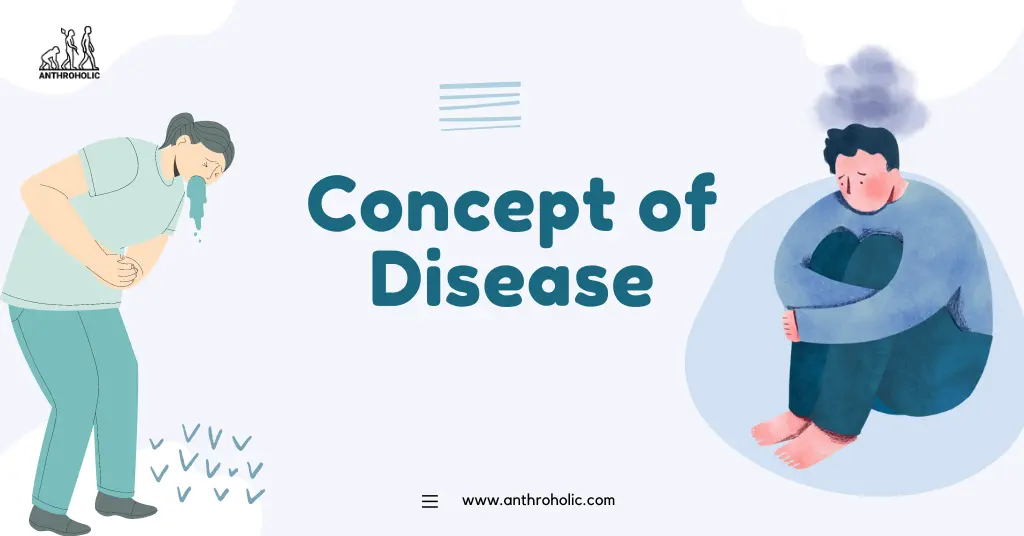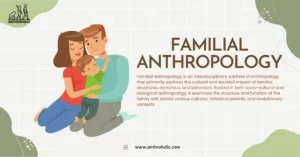AI Answer Evaluation Platform Live Now. Try Free Answer Evaluation Now
Concept of Disease
The concept of disease transcends mere physiological dysfunction and delves into the realm of cultural interpretations and social constructions [1]. Disease, illness, and health are not merely biological phenomena but are shaped and influenced by various social, economic, political, and cultural forces [2].

Table 1: Key Definitions
| Term | Definition |
|---|---|
| Disease | A specific pathological process in the body, characterized by a known set of symptoms. |
| Illness | A person’s subjective experience of a disease or condition, often influenced by cultural beliefs and norms. |
| Health | A state of complete physical, mental, and social well-being, not merely the absence of disease or infirmity. |
WHO’s Definition of Disease
The World Health Organization (WHO), a specialized agency of the United Nations responsible for international public health, defines disease in alignment with the International Classification of Diseases (ICD). The ICD serves as the global standard for diagnosing and classifying health conditions and diseases. According to the WHO, a disease is generally understood as a pathological condition of a part, organ, or system of an organism resulting from various causes, such as infection, genetic defect, or environmental stress, and characterized by an identifiable group of signs and symptoms. This definition underpins many international health policies and practices, reinforcing the biomedical model’s centrality in global health governance.
Cultural Interpretations of Disease
The Medicalization of Society
The medicalization of society refers to the process through which non-medical problems become defined and treated as medical issues [3]. This trend has shaped contemporary understandings of health and disease, often with a focus on biomedical explanations.
Western Medical Paradigm
In Western societies, diseases are often understood through the biomedical model, which emphasizes biological causality and tends to overlook social and cultural influences [4]. This paradigm often conflicts with traditional or indigenous perspectives.
Indigenous Perspectives
Indigenous communities often interpret disease through a holistic lens, considering the spiritual, emotional, social, and environmental factors. This section examines various indigenous perspectives and contrasts them with the Western biomedical model.
Gender and Disease
Gender roles and norms play a significant role in shaping disease experiences and health-seeking behaviors. This section explores how gender intersects with cultural understandings of disease and healthcare access.
Sociocultural Impacts of Disease
Disease as a Social Phenomenon
Disease is not merely a biological occurrence but a social phenomenon influenced by various societal factors such as poverty, inequality, and access to healthcare.
Table 2: Social Determinants of Health
| Factor | Description |
|---|---|
| Socioeconomic Status | Influence of income, education, and occupation on health outcomes. |
| Environmental Factors | Impact of surroundings such as pollution, housing, and workplace conditions. |
| Access to Healthcare | Availability and accessibility of medical services and resources. |
Stigmatization and Discrimination
Stigmatization associated with specific diseases (e.g., HIV/AIDS) can lead to social exclusion, discrimination, and further health disparities.
Global Health Issues
The global interconnectedness of health problems, such as pandemics, highlights the importance of understanding disease in a broad social context.
Medical Anthropology
Traditional Healing Practices
An exploration of traditional healing practices across various cultures, emphasizing their coexistence and sometimes conflict with Western medicine.
Health Policy and Ethnography
A look at how anthropological insights can contribute to shaping health policies, with a focus on qualitative ethnographic methods.
Conclusion
The anthropological perspective on disease offers a comprehensive and nuanced understanding, extending beyond biological explanations. Recognizing the interplay of cultural, social, and individual factors can foster a more empathetic and effective approach to healthcare.
References
[1] Kleinman, A. (1980). Patients and Healers in the Context of Culture. University of California Press.
[2] Farmer, P. (2004). Pathologies of Power: Health, Human Rights, and the New War on the Poor. University of California Press.
[3] Conrad, P. (2007). The Medicalization of Society. Johns Hopkins University Press.
[4] Engel, G. L. (1977). The need for a new medical model: a challenge for biomedicine. Science, 196(4286), 129-136.




